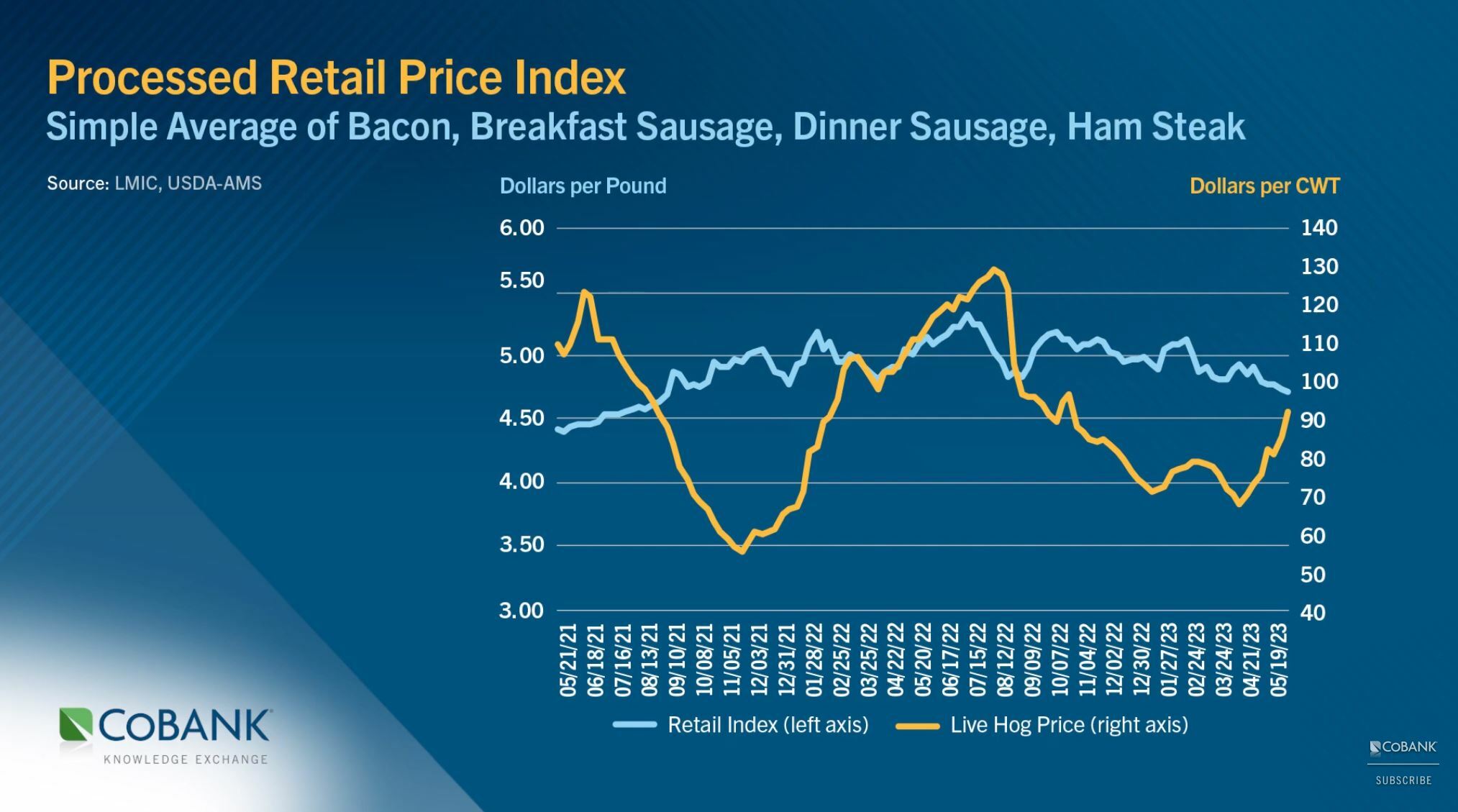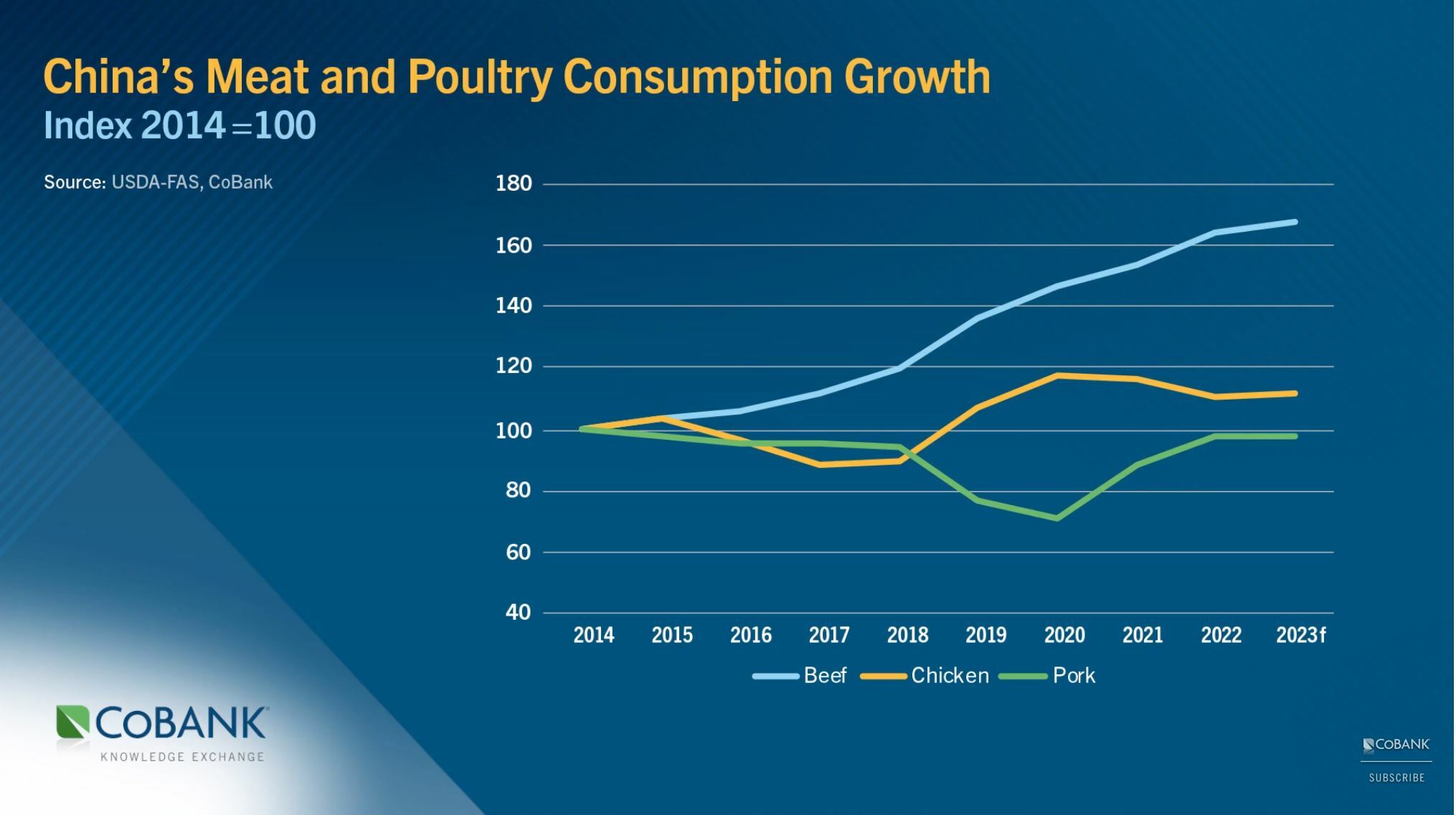



CoBank: Persistently high retail prices, soft demand cloud outlook for US pork producers
Depressed hog values amid sky-high production costs compound producers’ challengesU.S. pork producers are facing an increasingly challenging economic environment that is likely to persist through the remainder of 2023. The combination of elevated operating costs and depressed hog values are evaporating producer returns and limiting overall industry growth. While hog prices have risen this summer, they have not kept pace with skyrocketing costs for feed, labor, construction and other expenses, according to a new report from CoBank’s Knowledge Exchange. Soft domestic demand for pork and a murky outlook for U.S. pork exports are compounding the market challenges. Persistently high retail pork prices and a decline in food-at-home spending in the U.S. are limiting domestic consumption growth. Globally, demand for U.S. pork has come under pressure as China’s hog supplies have rebounded from the outbreak of African swine fever (ASF). The totality of adverse market conditions, which include higher borrowing costs, will limit U.S. herd expansion and tighten hog supplies. “Ultimately, these challenges all fall on the shoulders of pork producers,” said Brian Earnest, lead animal protein economist for CoBank. “In addition to pressuring hog and pork supplies, the current market conditions are derailing hog producers’ expansion plans. And even if the cost structure warranted additional production, demand is a part of the puzzle that needs addressing.” Per capita U.S. pork consumption has remained essentially flat since 1990 and averaged 50 pounds annually over the last decade. In the meantime, chicken consumption nearly doubled from 57 pounds in 1987 to 102 pounds in 2022. Roughly two-thirds of domestic pork winds up in processed items like bacon, sausage or hams, which have performed relatively well in recent years. However, key meat case items like pork loins are struggling to gain the same attraction that boneless skinless breast meat or ground beef enjoy.  Outside of bacon, pizza toppings and breakfast-type items, pork is usually consumed at home. And pork thrived during the pandemic-era lockdowns of 2020-2021, when food options were either take-out or at home cooking. But as food service has fully reopened in 2022-2023, moving retail case pork items has become more challenging. Exports have long played a key role in the U.S. pork industry. Approximately 25% of U.S. pork goes to export markets, the most of any of the U.S. processed animal proteins. When ASF decimated China’s domestic hog herd in 2018, annual U.S. pork exports to China tripled in 2019, and then doubled the following year. Since then, China’s need for U.S. pork imports have rapidly declined as its domestic herd rebounded.  Fortunately, Mexico has been a bright spot for U.S. pork. Exports to Mexico eclipsed 2.3 billion pounds in 2022, a record high for any single destination that accounted for about 37% of all U.S. pork exports. And today’s export volume to Mexico represents a 45% jump from 2016 levels. Nonetheless, uncertainty surrounding China, the world’s largest pork importer, and concerns about deteriorating global economic conditions cloud the outlook for U.S. exports. “Some of the challenges facing pork producers will linger for the foreseeable future,” said Earnest. “But longer term, if retail pork prices begin to return to a normal level it should help domestic demand recover. Also, the popularity of backyard barbecuing has encouraged consumption of some cuts of pork that have historically struggled, which has been helpful in an otherwise difficult situation.” |






